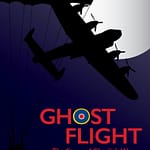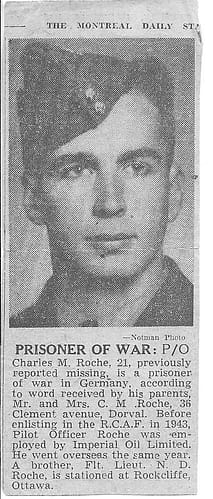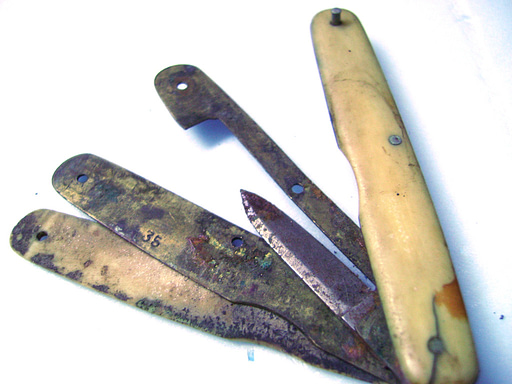
After that journey, the Luftwaffe Corporal delivered me to the huge camp at Nuremberg. There were prisoners of all denominations. Air Force, Navy and Army were all kept separate. The Russians were kept separate.

I had been commissioned an officer early in my bombing excursions. When I got to Nuremberg I was with a group, probably about three or four Canadians in our compound or hut and about twenty-five American officers, from Lieutenant to a Major. Among the Canadians, we had a range of officers up to a Squadron Leader. I was a Flying Officer; that’s equivalent to a First Lieutenant in the American Corps.
The compound was divided into a dozen or so shacks, with thirty to forty people in each cabin. Outside there was a fence with warning wires and beyond that was another compound. In the camp, we’d sit around the little stoves we had. One time a fellow came back in and someone asked him where he had been. He said he’d been out fishing, but there were no lakes in the camp; it was a big joke.
We made ice cream when there was snow on the ground. I’d put snow in a little tin can I had and I’d throw in some raspberries from the Red Cross parcel.
With the Red Cross packages, it was very interesting how people used the parcels. In the cot next to me was a big football player, a States boy from the U.S. Air Force. When we’d get our Red Cross parcels, the little fellow in the next cot, who weighed about 110 pounds; he’d eat everything right away. The big fellow would make his parcel last for about two weeks. It was a ten or twelve-pound parcel, and you could live comfortably if you portioned it out for a while. I always thought it was funny though because the little guy would eat everything and then he’d have nothing left. He’d just get his one little potato and one little toast. There was a belly stove in the middle of our camp so we could toast the bread.
We didn’t get to eat much in the camp. Our ration, if I recall, was two small potatoes, about golf ball size. I was the bread cutter; I still had my little pen knife. The others in the camp would use the knife to shave hair off guys and I cut bread with it. We had one little loaf and I had to cut it into thirty pieces or something. I cut it thin so that everybody in our camp would get a piece of bread. Then someone would put the pieces up to the light to see which one was the fattest piece. Then they’d cut cards to see who got the fattest piece. Some of the things that went on, it’s funny today; but then it wasn’t so funny to get a skinny piece of bread, but that was the ration. I don’t remember any liquid, maybe a dirty cup of water, some days they called it tea. It was a brown liquid – just no taste to it, that’s all.


Looking back, a lot of strange things happened. In the camp, I used to follow a big American. His name was Jim Ashley; he was a professor from Virginia. He taught horticulture and knew all about what was growing around the camp. So I thought; this was interesting. He was a very charming man. He was a big, easy-going, slow-talking guy.

He was about six foot four, a big skinny guy. I walked with him around the camp perimeter for exercise. As we were walking he’d reach down to the ground and pick up a piece of green of some kind, a weed, and he’d eat it. I asked him what he was doing and he told me he could tell what was edible. So he’d pick it and I’d pick a piece right beside it – a little tiny weed. This fellow knew what he was talking about.
A friend of mine named George Brown joined the Air Force around the same time I did. George played junior hockey in Lachine. His dad was a professional golfer at the Summerlea Golf Club. George’s dad died when we were training at the Manning Depot in Lachine.; that was our first training place after joining. So he was sent home to attend his father’s funeral and he stayed with his mother for a few months before he re-joined. He ended up at the same first squadron that I was on; the Lion Squadron. When we were in the Lion Squadron didn’t he go and get shot down on his fifth operation! I thought he was dead! He came down two (people) in a parachute, in Germany somewhere. George was mid-upper gunner – he and the tail gunner, whose chute was on fire, ended up going down with George’s chute, hanging onto each other. Both survived and were captured, ending up at the same place, Nuremberg. I thought he was dead! When I arrived at Nuremberg I was walking around and this fellow yelled, hey Roche! I looked over and there’s this skinny guy. He used to weigh about 210 pounds, but at the camp, he must’ve weighed about 150 pounds. His eyes were popping out and his face was skinny. It was George! I asked him what he was doing there in the camp. He said, oh ya know, I’m on an exchange program, Germans for Canadians, you know? So I said, well that’s great, you’ll be leaving soon. I was kinda surprised – he said, come on over for a cup of tea. He was in the adjacent enclosure; we were separated by a warning wire and a fence. The Germans had a patrol with guns and dogs, they walked around continuously. I said – well it’s kinda risky! He said, ah! So I said I’d go. I waited till the guard was at the other end and then I went through the warning wire, hoping the dogs wouldn’t notice. Then I crawled under the fence. He gave me a biscuit with peanut butter from his Red Cross parcel. I had a tougher time getting back. I had to get back for headcount. I remember it was getting dark and I managed to go through the same hole in the fence to my own place. I did that only one time because that would be asking for trouble.
While I was in the camp I saw the first German jet! I was out in the yard when this jet went over and I thought, what the heck was that! It was a Messerschmitt with a fixed regular motor. Zoom! It flew over the camp going about four or five hundred miles an hour. The Jerry’s had jets before we did, as far as I know. I thought, what is that going over, because none of our aircraft could go that fast. Our aircraft went about two hundred and fifty miles an hour, was mach at two hundred and eighty miles.
A really sad thing I remember; a chap in our yard lost his mind. He was in our group, but he didn’t talk to anybody. I think he had family back home; wife and children, like that. One day, he walked to the wire fence and started to climb up. He was shot dead by the Germans. They didn’t look for whether he was sick or whatever. All they cared about was that he was climbing the wire. He didn’t have a chance with the guards!

The bread that the Germans gave to the prisoners was a wartime black bread version called ‘silage bread’. Silage is fermented grasses used to feed cattle during the winter. Since silage is fermented it was used to replace yeast that was needed to make bread but not available during the war. To make black bread the Germans used silage, fresh chopped up grass, fermented ryegrass, also chopped, and tree flour; which is a nice name for sawdust and honey was used to sweeten the mix. Rye can be tricky since it can have a fungus that causes convulsions and death and of course sawdust is sawdust. At the beginning of the war, the Germans had farm produce from the countries that they had invaded. That soon turned against them and the German population were left to fend for themselves. In Great Britain, the Germans had cut off the food supply that was shipped into the country. The British Government very quickly forced all farmers to grow food for the nation. Bread was considered a staple food and was always available to the citizens of Great Britain. Meat and pretty well everything else was rationed. Soap and all those little daily supplies that we take for granted became a luxury.